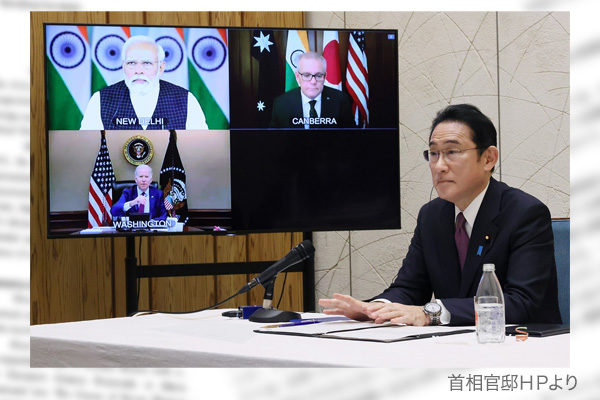Russian President Vladimir Putin’s invasion of Ukraine has demonstrated that he would not hesitate to use force to destroy post-Cold War order in Europe. As long as Putin remains Russian dictator, the United States would have no choice but to make more efforts to ensure the security of its European allies in the North Atlantic Treaty Organization. The “Asia pivot” policy of addressing the rise of China may have to be revised in the remaining three years of the Biden administration.
Ukraine invasion leading to Cold War 2.0
Western countries have acknowledged that they have entered the Cold War 2.0 or new Cold War with Russia three decades after the end of the U.S.-Soviet Cold War.
In a quick reaction to an about-face in the European situation, Germany has turned around its postwar defense policy that featured a reluctant attitude toward military contributions, announcing that it would increase its defense spending to the NATO’s target of 2% or more of gross domestic product and provide Ukraine with lethal weapons in a reversal of its hesitation to do so. It has also modified its energy policy that depended heavily on Russia, deciding not to operate the Nord Stream 2 pipeline completed to transport Russian natural gas to Germany via the Baltic seabed.
In its Interim National Security Strategic Guidance released in March 2021, the Biden administration positioned China as “the only competitor potentially capable of combining its economic, diplomatic, military and technological power to mount a sustained challenge to a stable and open international system.” But it mentioned Russia only as a disruptive factor, saying that “Russia remains determined to enhance its global influence and play a disruptive role on the world stage.”
The Biden administration has delayed the release of its official National Security Strategy as the dramatic change in the Ukraine situation has forced the strategy to be partly rewritten. The strategy may finally put a greater emphasis on the dangerousness of Russia.
Do not alienate India
At a time when the United States is likely to bring back its international security policy priority to Europe from Asia or give an equal priority to Asia and Europe, Japan should revise its postwar defense policy that has depended heavily on the U.S. for Japan’s national security. One of the steps Japan should take is to follow the suit of Germany to turn around the defense policy to abandon postwar taboos and unreasonable voluntary restrictions, as proposed in an advocacy ad by the Japan Institute for National Fundamentals on March 4.
Another step is to keep the U.S.’ interest in Asia and enhance partnership with Australia, India and others that share concern over China in the Indo Pacific region. An opportunity to do so is coming at a Japan-U.S.-Australia-India summit that Japan will host in Tokyo as early as in May under the Quadrilateral Security Dialogue framework. India has refrained from condemning Russia for its Ukraine invasion as it has had traditional friendly and cooperative relations with Russia and hopes that Russia would remain at least neutral to a future Sino-India border war. But India is an indispensable member of the Quad that has been solidifying its position as an institution to counter China. We should not alienate India because of differences over Russia.
Yasushi Tomiyama is a senior research fellow and Planning Committee member at the Japan Institute for National Fundamentals and a former foreign news editor and bureau chief in Washington, D.C., London, and Bangkok for the Jiji Press.


